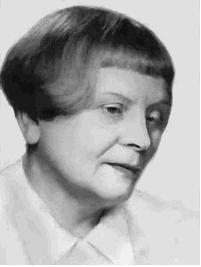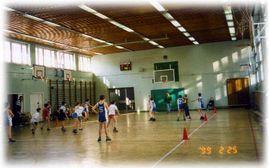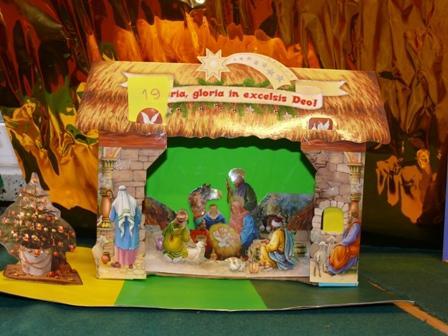martes, 30 de noviembre de 2010
My School - BG
Dobrich Secondary school of Mathematics
and Natural Sciences
“Ivan Vazov”
Dear students,
My name is Delyan. I’m fifteen years old and I’m from Dobrich, a town located in northeastern Bulgaria. I study in the Dobrich Secondary School of Mathematics and Natural Sciences “Ivan Vazov”.
I was asked to write a short description of my school for you, so here it is:
The school was founded in 1923. In 1972 some major changes were made and there were two new departments – three classes majoring in Mathematics and one in Physics. Later on, the school developed other departments majoring in the following subjects: Biology, Chemistry, Geography and IT. During school year 1988/1989, the school introduced a new foundation program majoring in English. The Dobrich High School of Mathematics and Natural Sciences has had very notable alumni throughout the years frequently winning Physics, Chemistry and Maths competitions and being accepted in the best universities in the country.
However, the schools success is mainly based on the teachers working there. All of them are outgoing, friendly, very helpful and inspiring. They know how to make students study to good
purpose. There are many extracurricular activities for students, willing to develop their Mathematics, Physics or Programming skills.
The Dobrich High school of Mathematics and Natural Sciences is not only famous of its success in scientific competitions, but in sports ones as well. Its football, basketball and table tennis teams often win their spurs in contests around the country and abroad. The school table tennis team, for example, is one of the very best in the country and competed in the National Championship last year. The team won third prize, which was considered a major success.
The school has a big yard with a basketball court and a football pitch. The PE classes are usually held there, in one of the two gyms, or in the table tennis room. There’s a nice cafeteria just next to the school yard, where students meet for lunch.
Nowadays, there are about a thousand students, in 40 classes. Students usually have 7 periods a day. The length of each period is the one approved by the government - 40 minutes. There is a 10-minute-break after each of the periods except for the third one, when the break is 20 minutes.
Delyan
My name is Nikolay Momchev.I’m 15 years old and I’m in the 9th grade of the Dobrich High School of Mathematics and Biology “Ivan Vazov”. It was originally built in 1923 as a Girls’ High School. Later it was made into a Polytechnic High School and it was finally converted into what it is now in 1972.It is one of the leading high schools in both the city and country. Ever since it started work students from it have achieved great accomplishments in regional and national science contests of all types. Sports aren’t forgotten in “Ivan Vazov” either as shown by the school’s great football, basketball, volleyball and badminton teams that have also represented the school in numerous tournaments. Many respected teachers, medics, chemical engineers, journalists, lawyers and members of other professions have graduated from it, some of which have achieved international acknowledgement.
The reason behind all of these achievements is simple – methodical and extensive preparations before each and every event that tests the knowledge and skills of us students. As a student here and a representative of my school in regional and national contests I hope to be able to show that my school and my city are among the best there is. I’ve won many regional Maths, Physics and Chemistry tournaments and I’m among the first 10 in almost all of the national contests I’ve entered. However, I don’t owe these successes to some incredible intellect I have – I owe it to the many hours spent in “Ivan Vazov”, preparing for them and to the teachers in it that have helped me in this preparation in every way they could.
This school nurtures a great deal of qualities, one might and will need later on in his/her life and they are sharpened even further for some students while preparing for and during contests – the desire to give your best and to win, the acknowledgment of defeat and continuing on nevertheless. Being able to defend your theses and reason yourself are also considered to be important things you can learn here, but there are 2 more qualities that are among the most important qualities you can receive while studying here – the ability to work effectively in teams and to be able to lead them.
The Dobrich High School of Mathematics and Biology “Ivan Vazov” is a great place to work on your talents and offers great possibilities for development of your capabilities. It is among the leading schools in Bulgaria and I am happy to be able to study in it.
THE CHESS AND OUR CHESS TEAM!
First about the game:
Chess is a two-player board game played on a chessboard, a square-checkered board with 64 squares arranged in an eight-by-eight grid. Each player begins the game with sixteen pieces: one king, one queen, two rooks, two knights, two bishops, and eight pawns. The object of the game is to checkmate the opponent's king, where the king is under direct attack (in check) and there is no way to remove or defend it from attack on the next move.
Chess Club "Energy 21 "
This is the chess club of our town . There are one hundred children training from the whole town. In it train several of the students of Ivan Vazov high school. Our club has many talented and knowledgeable children who wish to become Republican champion (the most prestigious title in Bulgaria.).The club has many successes. For example in 2008 four students who playing until 16 years, studying in Ivan Vazov high school took second team place in classical chess and one second place in zonal championship. Another success in team competitions is third place in 2010, which participated same players (Emil Todorov, Daniel Karadaliev, Tito Titov and Georgi Tsonev) . The team has many individual titles in various categories (8,10,12,14,16,18 and 20 years). When we go on tournaments we have fun . We have many friends from all cities. We are opponents on the chessboards but we are friends in the life. Practice is every day if you have a chance to go. On practice we have more fun and laugh than to play chess.I have many medals from tournaments and I will never be unhappy with that I am chess player.
domingo, 28 de noviembre de 2010
PARTNER SCHOOL FROM POLAND
ZESPÓŁ SZKÓŁ NUMBER 83 IN WARSAW

Our school consists of two schools: Primary School Number 152 and Sports Lower Secondary School Number 17 and its full name is Zespół Szkół Number 83 which could be translated ( in free translation ) as School Centre Number 83.
Our primary school is also known as the Maria Dąbrowska School. Maria Dąbrowska was a famous Polish writer ( 1889 – 1965 ), one of the main representatives of Polish realism in the 20th century.
The school is named after Maria Dąbrowska
The primary school is a local school with sports classes. Children used to start school at the age of seven but we have had six-year-olds for two years. The youngest students study: Polish, Maths, English, Art, PE, IT, RE. They have all the classes with one teacher except for English, RE and PE.
Older students from grades 4 – 6 have more subjects and apart from the classes they used to have while they were in grades 1 – 3 and now continue, they study: History, Nature, Technology, Music and each subject is taught by a different teacher.
Our sports lower secondary school isn’t a local school, it’s a school chosen by the students who are keen on sports and they have to pass a special test of fitness efficiency.
Two main sports disciplines are basketball for boys and handball for girls. Our students are really successful not only in Poland, but also abroad.

They study: Polish, English, Spanish, Maths, History, Geograhpy, Chemistry, Physics, IT, PE, RE, Art, Technology.
Nowadays our students don’t wear school uniforms but they used to in the past.
Our school building looks like many other schools in Poland. It was built in 1970.
The youngest students study on the ground floor, the older ones on the first and the second floor. There are thirty – seven classrooms altogether in the school, a library, a canteen, a gym, a sports hall, a swimming pool.

swimming pool
Outside there is a schoolyard with basketball and volleyball courts, football pitches and a playground for the youngest students.

Chemistry classroom
school library
MAIN EVENTS
Two main school events are connected with Christmas and Easter. We celebrate them altogether. In December students prepare nativity play which is presented the last day at school before Christmas holiday. Afterwards each class celebrates” class Christmas Eve “. Students bring made at home cakes or even various dishes, they eat them together, sing Christmas carols, exchange Christmas greeting. All the classrooms are decorated with a Christmas tree, Christmas cards and various Christmas ornaments.
Nativity scene made by one of the students

Fancy dress ball for the youngest students
Easter is another important moment in our school life. One of the classes prepares the mystery of Christ’s Passion. The students are helped by an RE teacher. The last day at school in Holy Week we meet to watch this performance and listen to the headmaster who extends Easter greetings. Then the students go to their classes together with the teachers and exchange Easter greetings and exchange Easter eggs, which is a typical Polish tradition.

Painted Easter eggs
Among other important days there are: Education’s Day ( 14th October ), Mother’s Day ( 26th May ), Children’s Day ( 1st June ).
As far as patriotic events National Independence Day is of great importance (11th November).
Two of quite new special days for us are Halloween and Saint Valentine’s Day.

Halloween
Every year in May family picnics are organised at school. Each picnic has its own keynote. A lot of competitions both for the students and for their parents are organised. All the families have the opportunity to meet the teachers and vice versa.
This school year on the 9th of December we are going to celebrate the 40th anniversary of the existence of our school. Our young artists have had a lot of rehearsals so far.
SCHOOL TRIPS
Each class usually goes on a trip a few times a school year. They are rather short trips. Their aim is to spend some time together, see interesting places and have fun.
There are also “ white schools” and “ green schools “. When a whole class goes out of Warsaw for at least a week to practise skiing and at the same time learn in the winter we call it “ white school “ and if similar event takes place in the spring we name it “ green school “.
This year 4 teachers and 12 students have visited Spain thanks to Comenius project. We have had an absolutely great time!

Some of our students in Spain
HOW DO OUR STUDENTS DESCRIBE THEIR SCHOOL
My school
I am Vietnamese and this is my first school in Poland. It is forty years old. There are also forty classrooms in my school and about fifty teachers. They are nice and fair. I should add that there are sports classes in my school. Students at the age of 7-9 go swimming as we have a nice swimming pool, older ones practise handball and basketball mainly. They have PE even ten times a week. My school year starts in September and finishes in late June. I always start school at eight and finish at half past two and fortunately I do not have to wear a uniform. Each lesson is 45 minutes. My favourite subjects are Maths and English. I also like playing badminton and football. There is one thing I do not like: we have regular homework to do.
N. M. H.
Our school day
I start school at eight o’clock every day. I have a shower in the morning to refresh my mind and to be ready for the coming busy day in school. I can hear the first bell at five to eight and the second one promptly at eight o’clock. It is a signal for me to be ready. I should not lose my concentration. What I especially like is that my school is famous for its concentration on sport. There are two gyms, a football pitch, a swimming pool and a modern playground. Lots of girls play handball while boys practise basketball. We are really good. I have even nine lessons a day and my teachers are demanding. When I come back home, I am really tired.
Our school is celebrating the 40th anniversary in December. That is why we are preparing for the big show. I like my school very much.
Natalia and Laura
Our library
The library is on the first floor, next to the staff room. It is quite big. There are plenty of bookshelves in the library.
We like it very much. It is a very quiet place where we can sit in silence and relax and what is more, there are plenty of books and magazines there. We often do our homework in the library because we need a dictionary or an encyclopedia.
Moreover, there are a lot of books there we read for pleasure, especially during the breaks. It is also a good place if we want to use computers or surf the Net. There is a special room with some computers. In addition, we can borrow films from the library.
It is our favourite place at school.
Julia and Paulina
My school ( only some fragments )
Our education is on a very high level, there are a lot of very smart students who were even rewarded by the mayor of our district (because of sports results and also school results).
Our teaching staff is really qualified and all the teachers are really nice, we can even laugh together. Former pupils still visit us. Some of their children are with us here and they continue a family tradition.
One of the most important things is that we are in Comenius Young Reporters project, and we’ re in touch with some students from our partner schools.
Written by Kamil, student of grade 2b
Thank you.
sábado, 27 de noviembre de 2010
domingo, 14 de noviembre de 2010
sábado, 13 de noviembre de 2010
The first mobility
The next day we visited our partner school in Puente Genil. Both teachers and students were delighted with a beautiful hundred-year-old school building, listened carefully to the Spanish students showing us around the school and admired Carmen, a flamenco singer, and flamenco dancers. The same day Spanish students played host to our students.
During our stay in Spain we had the privilege of speaking to the mayor of Puente Genil and the mayor of Cordoba. We had the fortune to visit such cities like: Granada, Cordoba, Malaga with their priceless monuments: la Alhambra, Mezquita, Alcazabar and others.
We had the opportuninty to taste delicious Spanish dishes and even entertain the possibility of visiting Costa del Sol. But the most enjoyable experience we shared is Spanish hospitality.
And now we would like to thank warmly the Spanish authorities, the headmaster of Compania de Maria, the Spanish coordinator, all the teachers, families and students involved in this Comenius project for everything we were able to experience in Andalucia.
Polish Comenius group
jueves, 11 de noviembre de 2010
 |
| Spain 11/2010 |
We enjoyed every bit of our visit at Puente Genil,meeting our partners in the project was exciting and enriching experience. Visiting Granada and La Alhambra was a feast for our eyes and our feet:) Cordoba,a true capital of culture and history. We'll definitely return to this magnetic part of Spain. May the meetings to come, be as engaging and as stimulating. Thanks to Encarni and the Spanish team
Visit to Spain
We are sending you the report about our first mobility meeting, in fact we do not exactly know what you wanted us to write, but we think itshould be our wiew on it.
The first mobility meeting was organised perfectly. We met all our partners. We could see that a group of different people was full of enthusiasm, all of us wanted to do our best.
During all these days we shared our experiences and ideas. and we were learning everything about different cultures, nations and countries, step by step.
All this is, in fact, the role of our project. The rich program was also aimed at learning some facts about culture, history, cuisine and sights of Spain.
Coordinators from Slovakia
miércoles, 10 de noviembre de 2010
martes, 9 de noviembre de 2010
Puente Genil
If you want to see more photos of our students creating the map, just click on the map
 |
| Fotos mapa del rincon (elaboracion) |







